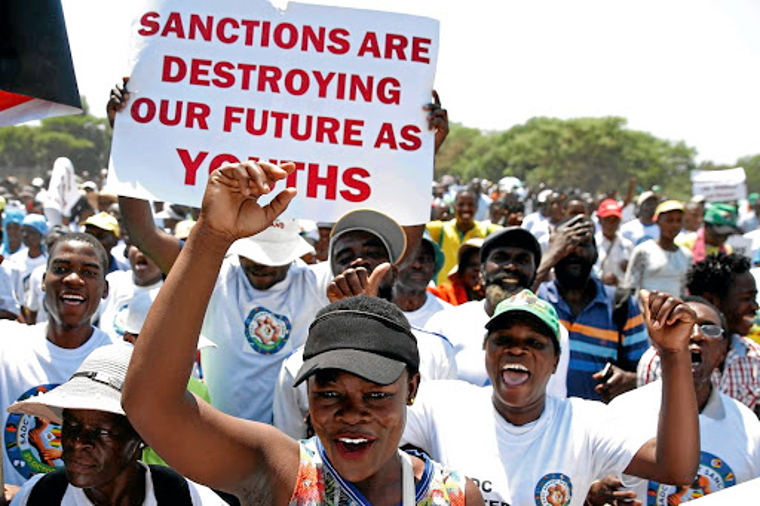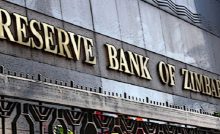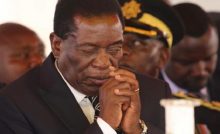US argument that its sanctions do not affect ordinary Zimbabweans is a complete fallacy




At the end of the war, it was the USA that put Germany and Japan back on their feet and it was the US that led the way in creating the IMF and World Bank and even the United Nations. No one else could have done that and the world should recognise this.
In the following half century, it was the US that led the way on globalisation and free trade. They allowed their huge domestic market to absorb the products of the newly emerging economies of the East. The US almost single handedly created the conditions which were used by China, after 1975, to lift two thirds of their population out of poverty and in the process creating the second largest economy in the world – repeating what they did with the Marshal Plan for Europe and the post war changes in Japan.
In doing so the US has created a world that is more equal and to some extent democratic. That is true in Europe and Japan, not quite so true in China although the social and political changes in China far exceed the changes elicited from the ideological wars fought under Mao after 1949. Having done so by pursuing free trade policies, elements in the US now appreciate that they have created competition for their number 1 slot in the world and want to backtrack. In contrast, China has taken over the lead in the cause of globalisation and free trade – mainly because this is what drives their economy.
Looking back on these massive success stories, it is a puzzle that today their main focus on trying to remain influential and to secure changes, are sanctions. The US once again leads the world in the application of sanctions in their efforts to change the world into their image. Today 62 countries – that is 32 per cent of all the countries in the world operate under sanctions imposed by the USA. In this group – Zimbabwe stands out as the only country under a US sponsored sanctions regime imposed by an Act of Congress. The rest are all administrative imposed by Presidential dictate.
There was a flurry of interest yesterday when the State Department issued a notice that the ordinary sanctions on Zimbabwe were being scrapped and the list of the individuals and companies to remain under US sanctions was being adjusted. It caused some excitement but the reality is that they changed very little, kept the worst elements of the sanctions in place and even reinforced their policy of isolation and coercion for change.
It is clear that the ZDERA Act has been kept in place for the 22nd year, as such it must be one of the longest running sanctions programs ever. I was surprised when the State Department described the ZDERA restrictions as not being “sanctions”. Strange definition when this piece of legislation was passed by Congress in recognition of the violations of property rights and human rights violations that characterised the 2000/2005 “fast Track Land Reform Program”.
Under this Act, the United States explicitly denies Zimbabwe access to all Multilateral lending and imposes financial penalties on banks which trade with Zimbabweans under sanction. In consequence Zimbabwe banks do not have significant relations with international banks described in the industry as “Correspondent Banks”. So, to make a transfer in US dollars we have to use an intermediate Bank that is not so restricted and our Banks have stated that this costs them up to US$1 billion a year. That might not seem a lot of money to the USA but its 12 percent of our export earnings. It could have fully paid our national debt over the past 20 years.
Continued next page
(127 VIEWS)
Page: 1 2
Recent Posts
Reserve Bank of Zimbabwe expects more foreign currency sellers to join the interbank market
The gazetting into law of the payment of quarterly taxes on a 50-50 basis in…
Zimbabwe 2025 citizens’ budget
Zimbabwe has today unveiled a ZiG276.4 billion budget for 2025 during which it expects the…
To go or not to go- Mnangagwa in a quandary
Zimbabwe President Emmerson Mnangagwa has repeatedly stated that he is not going to contest a…
ZiG loses steam, falls against US dollar for five consecutive days
The Zimbabwe Gold fell against the United States dollar for five consecutive days from Monday…
Indian think tank says Starlink is a wolf in sheep’s clothing
An Indian think tank has described Starlink, a satellite internet service provider which recently entered…
ZiG firms against US dollar for 10 days running but people still do not have confidence in the currency
Zimbabwe’s new currency, the Zimbabwe Gold (ZiG), firmed against the United States dollars for 10…


